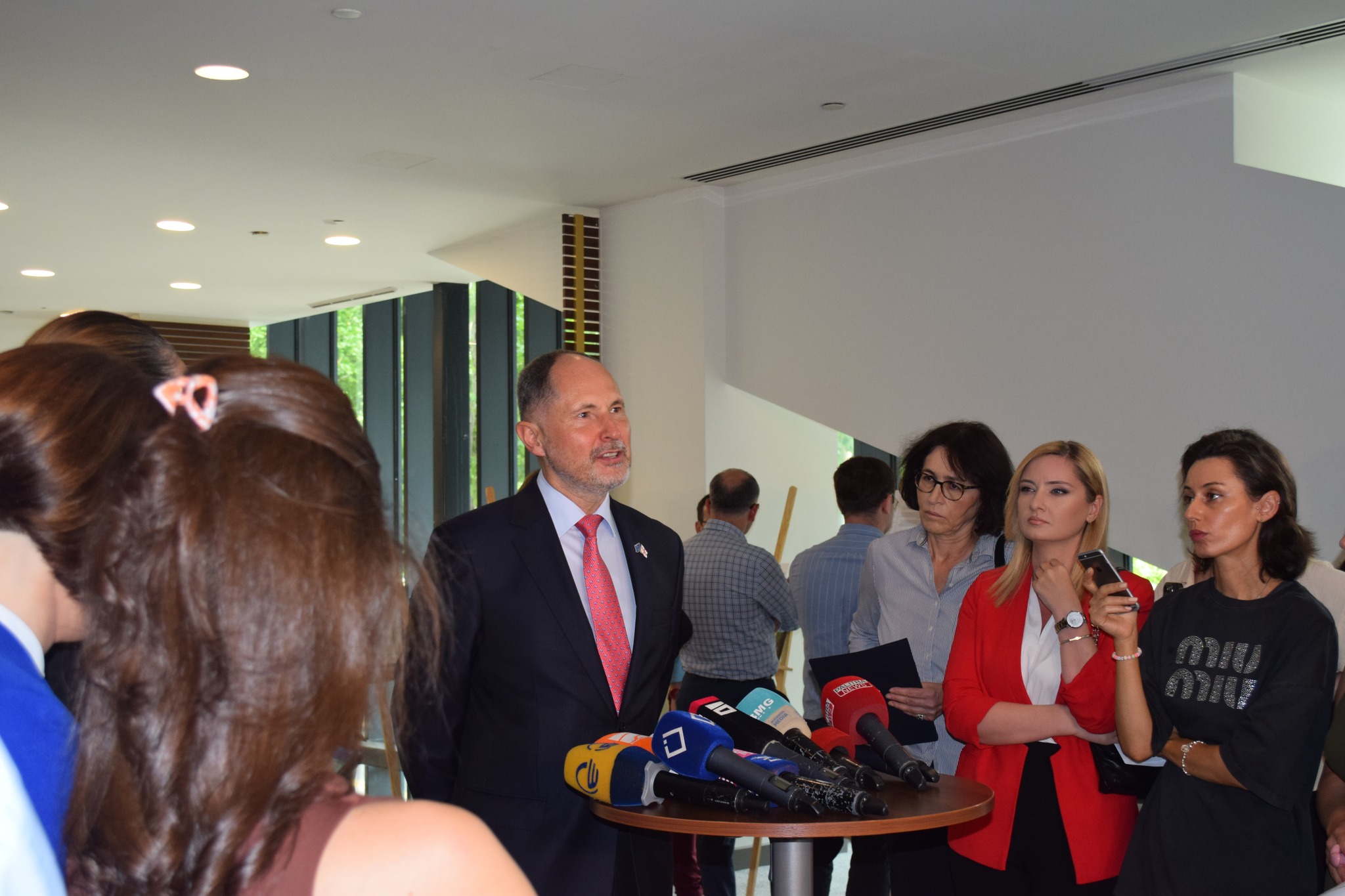
EU halts aid to Georgia
The European Union has frozen €30 million from the European Peace Fund (EPF) intended for Georgia’s defense forces, announced on July 9 by EU Ambassador to Georgia, Paweł Herczyński.
He also stated that this is “just the first step.” If Georgian authorities continue making anti-democratic decisions and spreading false accusations against Western partner countries, the EU will consider additional measures, Herczyński told journalists.
The statement was made during a two-day international conference in Tbilisi titled “EU Enlargement – Geopolitical Necessity and Next Steps for EU Candidate States.”
Firstly, direct EU support to the Georgian government will be reduced, with a focus on strengthening civil society and media.
“As previously stated, EU funding for the Georgian government is ten times higher than what we allocate to civil society and media,” Gerschinskiy said.
“The EU has been financing the Georgian government for many years, with over half of the funds being direct budget support. Now, the focus will shift towards increasing support for NGOs and media organizations currently under significant pressure due to the ‘foreign influence transparency law’ in Georgia,” added Paweł Herczyński.
- Thirty-six countries are urging the Georgian government to repeal the “foreign agents” law
- In what scenario would the ruling party in Georgia lose the election? Opinion
- How is the Georgian government going to implement the recommendations of the European Commission? A concrete plan
Also halted is Georgia’s EU accession process, stated Paweł Herczyński. This decision was made by EU leaders at the latest European Council meeting on June 27.
“The intentions of the current Georgian government are unclear to EU leaders. The law on transparency of foreign influence is clearly a step backward compared to the nine recommendations proposed to Georgia by the EU.
Moreover, the anti-Western, anti-European rhetoric is completely incompatible with the declared goal of EU accession. Unfortunately, at this moment, Georgia’s accession to the EU is suspended. It is truly sad, it is heartbreaking,” said Paweł Herczyński.
- Azerbaijan’s pro-government media backs Georgia’s “foreign agents” law: Why?
- Georgia holds significant military and political importance for Armenia.” Opinion from Yerevan
- Georgia’s double game: European integration and Chinese investments
Paweł Herczyński expressed concern that Georgia significantly lags behind other candidate countries on the path to EU accession.
“I sincerely hope that after the parliamentary elections in October 2024, the newly formed government, whatever it may be, will resume serious efforts towards EU accession,” the ambassador said.
Herczyński reminded that the European Union has been sending very clear signals to the Georgian authorities for several months that adopting the law on transparency of foreign influence would have consequences.
“The law has indeed been adopted. Now, unfortunately, it is time to assess the outcomes,” Paweł Herczyński added.
Earlier, the United States announced the beginning of a review of its partnership with Georgia.
In June, the first package of sanctions against the Georgian authorities was announced, targeting lawmakers, law enforcement officers, and members of the ruling party.
In early July, the U.S. indefinitely postponed the joint U.S.-Georgian military exercises “Noble Partner,” conducted in Georgia since 2016. Michael Carpenter, Director for European Affairs at the U.S. National Security Council, stated that this decision is part of a comprehensive review of bilateral relations between the countries.
According to a statement from the U.S. Department of Defense, the decision was prompted by “false accusations by the Georgian government against the U.S. and other Western entities.”
